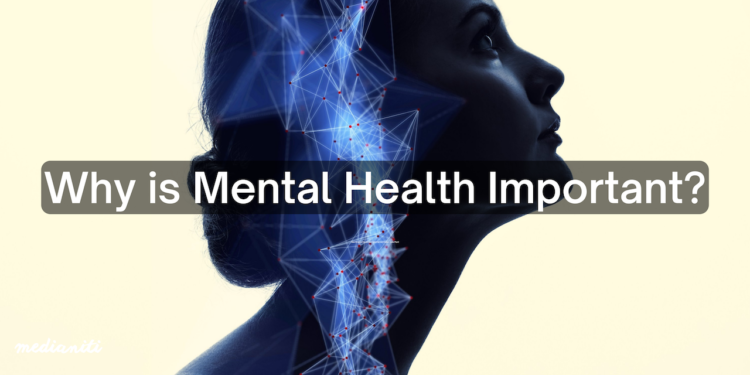How your Mental Health can affect your life.
Mental health includes our emotional, psychological, and social well-being. It affects how we think, feel, and act. It also helps determine how we handle stress, relate to others, and make healthy choices. Mental health is important at every stage of life, from childhood and adolescence through adulthood.
Mental health is one of the most discussed and vivid topics in the world.
Mental health is a very important part of our lives and as a working society, we tend to take care of our mental state and run away rather than identify the problem. We overlook our mental issues and address the issues which are physical and this can cause serious issues later in the future.

The five main warning signs of mental illness are as follows:
- Excessive paranoia, worry, or anxiety
- Long-lasting sadness or irritability
- Extreme changes in moods
- Social withdrawal
- Dramatic changes in eating or sleeping pattern
If such symptoms are witnessed in you or in people you need to consult a doctor or therapist. Ignoring these symptoms can cause serious damage to your mental health and might give rise to disorders
Below are the five most common mental health disorders and their related symptoms:
Anxiety Disorders.
People with these conditions have severe fear or anxiety related to certain objects or situations. Most people with an anxiety disorder try to avoid exposure to whatever triggers their anxiety.
Mood Disorders
People with these conditions have significant mood changes, generally involving either mania, a period of high energy and joy, or depression.
Psychotic Disorders
Psychosis itself is characterized by an impaired relationship with reality, often including confusion, hallucinations, and delusions.
Dementia
If mental health is not in check it can also cause dementia where people lose memory for a fragment of time or an entire phase of their lives.
This is something where, either a person eats to fill a void or starves themselves into anorexia.
Certain factors may increase your risk of mental illness:
- Family history of mental illness
- Previous history of mental illness
- Intense psychological or physical stress due to stressful situations in life such as financial problems, loss of a job, death of a loved one, or a divorce
- Traumatic experiences such as sexual assault, war, abandonment
- Unpleasant childhood due to bullying, abuse, or neglect
- Chronic medical conditions, especially diseases that are associated with chronic pain and diseases affecting the quality of life, such as rheumatoid arthritis, cancer, fibromyalgia, etc.
- Trauma to the brain
- Alcoholism or drug abuse
What causes mental health problems?
- childhood abuse, trauma, or neglect
- social isolation or loneliness
- experiencing discrimination and stigma, including racism
- social disadvantage, poverty or debt
- bereavement (losing someone close to you)
- severe or long-term stress
- having a long-term physical health condition
In today’s time, there are various causes of various disorders but the most among the ages of 15-50 are Depression. Which are major causes of suicide in 21CE.
Depression is a mood disorder that causes a feeling of sadness and loss of interest. Also called a major depressive disorder or clinical depression, it affects how you feel, think and behave and can lead to a variety of emotional and physical problems. You may have trouble doing normal day-to-day activities, and sometimes you may feel as if life isn’t worth living.
More than just a bout of the blues, depression isn’t a weakness that you can’t simply “snap out” of. Depression may require long-term treatment. But don’t get discouraged. Most people with depression feel better with medication, psychotherapy or both.

Symptoms
Although depression may occur only once during your life, people typically have multiple episodes. During these episodes, symptoms occur most of the day, nearly every day and may include:
- Feelings of sadness, tearfulness, emptiness or hopelessness
- Angry outbursts, irritability or frustration, even over small matters
- Loss of interest or pleasure in most or all normal activities, such as sex, hobbies or sports
- Sleep disturbances, including insomnia or sleeping too much
- Tiredness and lack of energy, so even small tasks take extra effort
- Reduced appetite and weight loss or increased cravings for food and weight gain
- Anxiety, agitation or restlessness
- Slowed thinking, speaking or body movements
- Feelings of worthlessness or guilt, fixating on past failures or self-blame
- Trouble thinking, concentrating, making decisions and remembering things
- Frequent or recurrent thoughts of death, suicidal thoughts, suicide attempts or suicide
- Unexplained physical problems, such as back pain or headaches
For many people with depression, symptoms usually are severe enough to cause noticeable problems in day-to-day activities, such as work, school, social activities or relationships with others. Some people may feel generally miserable or unhappy without really knowing why.































